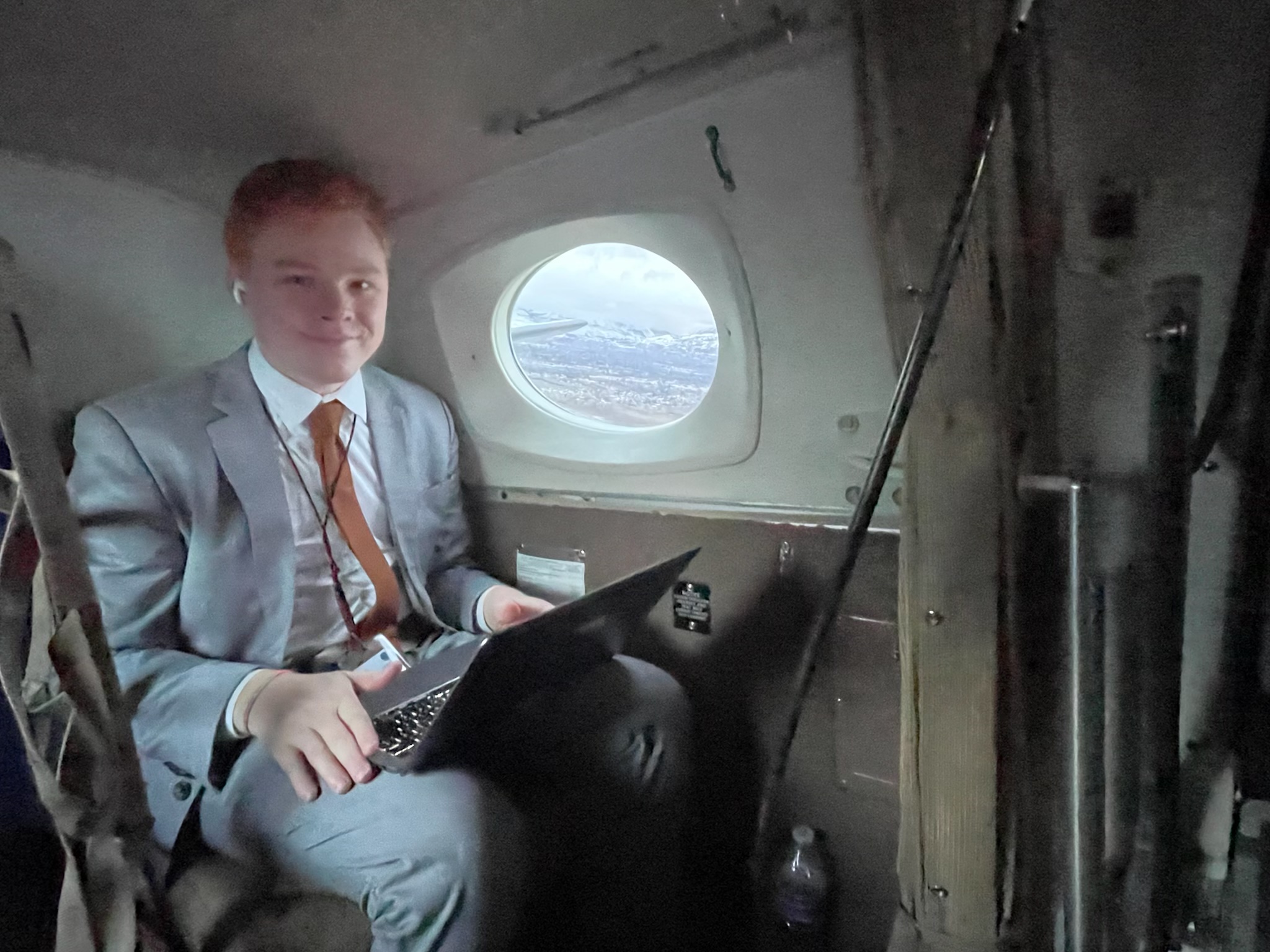
Jackson Murphy
Learning Hard Skills and Filling Vacuums: One JCOM Alum’s Guide to Success
By Hailey Brown
Jackson Murphy landed his first public relations internship long before most of his fellow freshmen knew their way around campus. Again, not every student’s dad was a journalist for ABC who then went on to manage public relations for Utah’s attorney general.
“I knew I wanted to do PR because that's what my dad did,” Murphy says. “I saw early how powerful and impactful storytelling and journalism could be.”
Over the next four years at Utah State University, Murphy completed numerous public relations and journalism internships and jobs, each building his skills and bringing him to his current role as communications director for Utah Lt. Gov. Deidre Henderson.
Murphy said his internships were critical for understanding what he wanted to do. “You don't know what you like to do and don't like to do until you try it.”
He said engaging in these kinds of opportunities will help you get where you want to go quickly after graduating.
Internships are critical for building the skills necessary to succeed in future jobs, says Murphy. His first internship was with CAPSA, a nonprofit domestic violence sexual abuse, and rape recovery center serving Cache County. That experience led to his next position as a public relations and marketing assistant for USU.
“I succeeded in a challenging position by learning specific hard skills,” Murphy says. “I showed that I could write content. I showed that I could write a press release. And I showed that I could pitch a story to a news organization and it would get picked up.
“I also became really central to our social media identity and our new found voice on social media. And that allowed me to stay there for two and a half years.”
Murphy continues, “I got to do all the fun and important things that came with that, like dealing with crisis communications and other challenges. Through it all, I was able to pick up many new skills. And I also got to see things from like, a 30,000-foot view and learn some really important lessons about communications and institutional voice that I use in my current job.”
The experience also taught Murphy about the importance of what he calls, “filling vacuums.”
Murphy says every organization has gaps where they need help. Finding and filling these vacuums will help you build more skills while proving your value to your employer.
Finding success in a career is not all about internships, according to Murphy. The skills and lessons learned while completing a degree in journalism are just as important. Despite studying the public relations emphasis, Murphy found some of the most important lessons he learned at USU were in the print and broadcast emphases.
For non-broadcast majors, the multimedia bootcamp class can seem like a roadblock on the way to graduation. But as professor Brian Champagne iterates again and again in class, the skills students learn there are translatable to all fields of journalism and communication. In fact, they’re becoming essential.
Murphy says “You may not want to be a broadcast journalism student. You may never want to do that type of thing in your life. But the skill set of being able to shoot a video with good audio and interesting visuals is a skill that will make you above and beyond more employable than every other communication student that's coming out of college.”
As a communications specialist he uses his multimedia skills.
“I probably spend 30 to 40 percent of my day, maybe more, planning, creating and managing content,” Murphy says.
Another important professor for Murphy was Matthew LaPlante. In LaPlante’s news writing course, Murphy learned how to understand and write down information quickly, in a way that makes sense.
The JCOM department offers courses in all areas of media. “If you have time, learn everything you can,” Murphy says.
“I get to use those hard skills that I learned really early on in college – producing video, taking photos, writing and editing – nearly every single day,” Murphy says. “If you can learn those things, your communications career will be very fruitful.”

